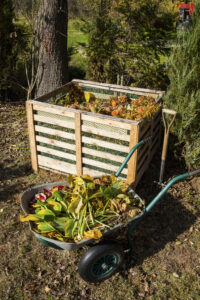About Us
Headquartered in Sheldon, VT, The Abbey Group knows good, local food. The company got its start more than a quarter century ago when it took on the task of feeding hungry students at Bellows Free Academy High School in nearby St. Albans. Today, The Abbey Group has grown, dishing up local around New England and Upstate New York.
It is—and always has been—our mission to ensure people are getting healthy and delicious meals every day. We care about our employees and customers, and we do what it takes to make sure they’re happy.
Dishing up the local!
A community grows when we all support each other’s endeavors, and that’s why the Abbey Group is committed to local food. We prioritize local products in our recipes.
Our well-developed relationships with local farms and food producers allow us to purchase directly from them whenever possible. Many of those farmers are now partnered with local nonprofits—such as Green Mountain Farm Direct and Vermont FEED. Through those partnerships, our schools can have their produce delivered directly to their doors.

Farm to Plate
We use a variety of methods to purchase locally grown and produced food. Large quantities of local produce are sourced through our main purveyor, Reinhart Foodservice, and organizations such as Green Mountain Farm to School and Rutland Area Farm and Food Link help us secure a varied supply of seasonal produce to use in our food service operations. We also make direct farm purchases after a satisfactory site inspection by one of our experienced personnel.
meet one of the partners helping us keep it local,
in our featured local producer ›
Our Nutrition Policy
Our nutrition policy encourages students to establish and maintain lifelong healthy eating habits. The school cafeteria is a learning environment that can deeply affect the way children understand food and its connection to our environment. Our school food service programs strive to promote healthy, sustainable practices in the cafeteria.
“The Abbey Group has kept well ahead of the game with nutritional changes and continues to bring new menu items each month to meet the needs of our changing population.”
Rebecca Goulet
Finance Manager | Winooski School District

Our Commitment to Sustainability
At The Abbey Group, we recognize that food production and distribution methods can have adverse impacts on our environment. When we started this company 30 years ago, we were confident we could minimize those effects by focusing our purchases to the individual communities we serve. The concept is elementary, but the results are profound. Buying local works. Beyond boosting the local economy, we are creating collaborative relationships that make our company better.

Over the years, our mission to support local communities has sprouted to a full-fledged effort to reduce our environmental impact. We have made concrete progress in reducing our environmental footprint – including the amount of water and non-biodegradable products we use. We’ve even diversified our business to include a solar farm to help offset our carbon emissions. We are proud of the advances we have made so far, and we continually expand on that foundation.
To help build a more sustainable tomorrow, we need to go beyond minimizing our own impact. We want to influence every member along our supply chain from where we source our ingredients to the compost. To do this, we have built an ambitious framework of sustainability goals that are currently under exploration and pursuit. This also means influencing our customer’s behavior through education and providing the appropriate mechanisms for their participation.
The Abbey Group is your partner in creating a sustainable food service program. We have helped facilitate dozens of composting and recycling programs, school and community gardens, water reduction plans, energy management systems, and several site-unique problems. Many of our business strategies that encourage efficiency — such as our just-in-time ordering, our emphasis on scratch cooking, and the use of minimally processed ingredients — are a huge boost to our efforts.
Reduce, Reuse, & Recycle
Most waste generated by kitchens can be recycled. Cardboard boxes, aluminum cans, and plastic bottles are sorted by our staff, and collected by the institution’s recycling program. We participate in food waste composting programs with great success. Food scraps are picked up and delivered to neighboring farms to be turned into compost. The cycle is completed when the compost is returned to the earth to grow the local fruits and vegetables we serve to our customers.
We’ve banned Styrofoam in our cafeterias and have severely limited plastic utensils. When we have to use anything disposable, we opt for reusable, recyclable, and/or compostable whenever possible.

